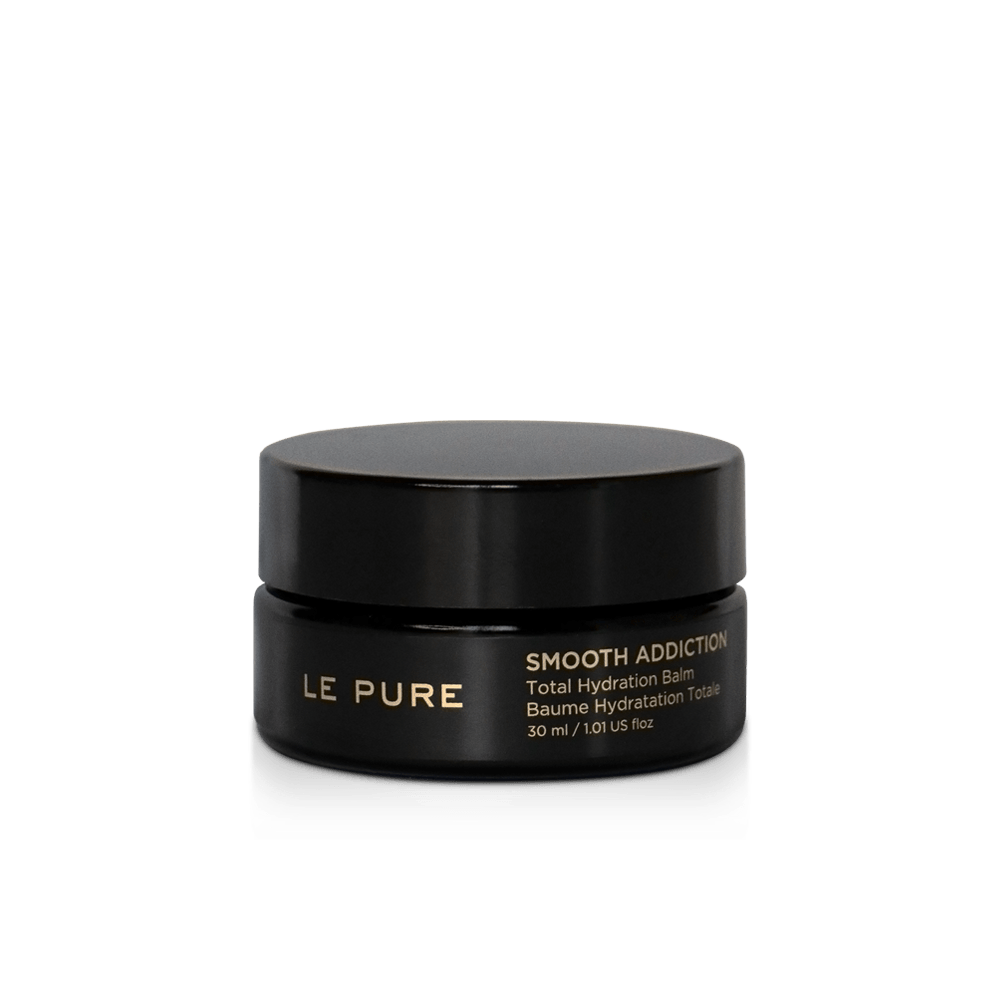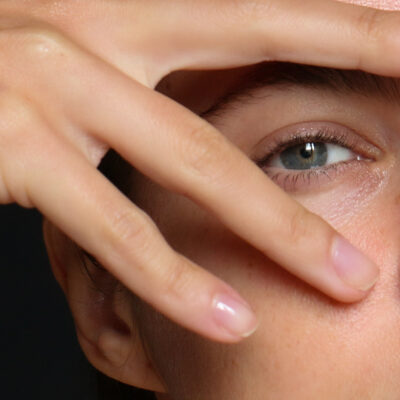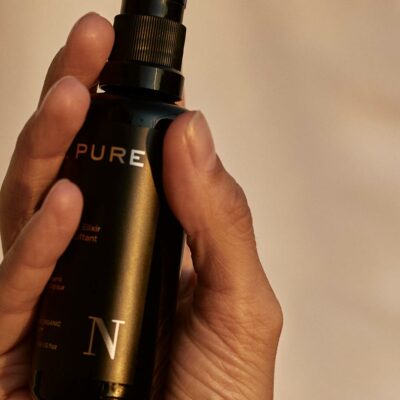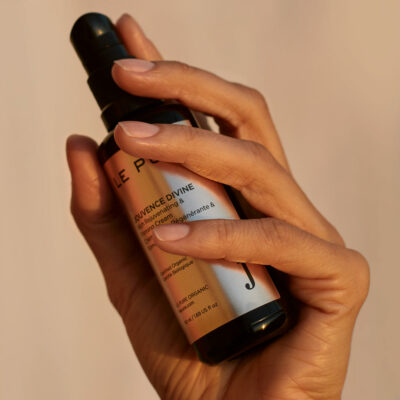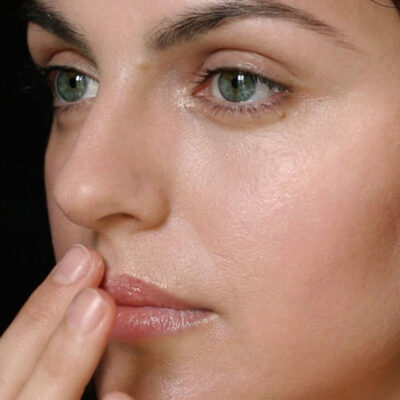Treatment for Dry Skin
Skin dryness occurs when the skin does not secrete enough sebum to hydrate itself. In consequence, the skin is scaly and flaking (desquamation), it reddens easily and is prone to couperose and rosacea especially on the cheeks. Dry skin has a rosy, white color with a matte aspect and a smooth texture.
Products for Dry Skin
Dry Skin Causes
There are various factors and causes of dry skin. People with fine and fair colored skin have a genetic predisposition to develop skin dryness over the years. Factors such as lifestyle, climate conditions and age can also have a strong influence on the development of dry skin.
Many people have oily skin, while some areas of their face are very dry. In that case, we recommend to follow the treatment of seborrheic skin, since the underlying causes of the skin dryness are different.
Dry skin in young people is smooth, but it turns rough with age. This skin type is very common in Northern Europe and the US and is characterized by the lack or scarcity of sebum secretion. Dry skin can’t tolerate heavy sun exposure and gets sunburned easily. Frequent skin alteration of dry skin include vascularisation, erythrosis, couperose, rosacea, photosensitive hyperpigmentation and premature skin aging.
1. Climatic Conditions and Dry Skin
Extreme climatic conditions (cold, heat, wind, sun) can have a negative impact on dry skin. This skin type is also very sensitive to aggression caused by exposure to chemical substances. If the skin is exposed to such agressions over long periods of time, it may lead to profound dehydration of the skin.
2. Dry Skin and Internal causes
Dry skin can be caused by an alteration of the process that regulates the skin’s desquamation (the intercellular also called cementing lipids are altered). If in addition to dryness, the skin also experiences hyperkeratosis, we classify this type of skin as constitutionally dry skin or xerosis.
3. Nutrition and Dry Skin
An unbalanced diet with a lack of liquids can aggravate skin that has a tendency towards dryness.
4. Digestion and Dry Skin
Constipation causes dryness in skin and hair. An unbalanced intestinal flora and/or a permeable intestine (leaky gut) can provoke skin dryness and dehydration.
5. Vitamin D deficiency and Dry Skin
Vitamin D deficiency can aggravate the condition of dry skin. We recommend controlling vitamin D values periodically with a blood test. In case of deficiency follow your doctor’s advice for the most adequate supplementation.
6. Teeth, Gums and Dry Skin
The health of our teeth and gums is directly related to the condition of our facial skin. Teeth, gums and jaw bones have to be well maintained as they keep the skin of the face from the nose down in a firm state. Vitamin D deficiency can have a negative effect on the gums, especially if there is also a hereditary factor.
We recommend regular dental cleanings to remove teeth tartar and to nourish the gums with a cold pressed plant oil infused with plant extracts. It is also very important to eat foods naturally containing silica along with maintaining an intestine that is able to absorb the nutrients from the diet.
7. Hormones and Dry Skin
Alterations of the hormonal system such as the thyroid gland can aggravate the condition of dry skin.
8. Diseases and Dry Skin
Certain diseases can have secondary effects on the skin and cause dryness.
9. Medication and Dry Skin
Some medications and medical treatments such as chemotherapy can also contribute to skin dryness.
10. Emotional stress and Dry Skin
Stress that originates from negative or unprocessed emotions can have a detrimental effect on our organism. It is crucial to address these issues and to learn how to manage our emotions.
11. Lack of sleep, Stress and Dry Skin
If we experience a lot of stress in our daily lives (excess of work related as well as emotional stress), we can observe these negative effects also on our skin. If we also skip breaks during the day and/or if we don’t sleep well or get sufficient hours of sleep, the skin may suffer and increased dryness can be one of the symptoms.
12. Skincare causing Dry Skin
Many people use cleaning products that contain soap or synthetic detergents that dry out the skin. Even if they are labeled as “gentle”, “without soap” or “for sensitive skin”, they are not compatible with the skin’s protective barrier. Counteracting the dryness caused by the cleanser with applying creams with occlusive fats (synthetic or chemically modified fats) makes the condition of the skin even worse. These fats only provide the sensation of nutrition, but they do not penetrate and nourish the skin adequately.
The skin needs cold pressed plant oils from plants that are rich in mucilage, unsaturated fatty acids and lipids rich in ceramides. These oils soak the horny layer of the skin and help to avoid excessive desquamation. The ideal plant oils and butters for dry skin are jojoba, avocado, shea and coconut, as they contain important amounts of oil soluble vitamins with dermatological properties. Lecithin is a vital cell component and has a fundamental role in skin permeability.
13. Skincare Rituals and Dry Skin
The ideal cleansing and skincare application technique is essential to avoid further aggravation of dry skin. Fast, rubbing movements accentuate skin dryness. It is crucial to sit down for the cleansing routine and we recommend to follow our Antiaging Face Cleansing Ritual.
What is dry skin?
- Insufficient sebum secretion and/or dehydration of the stratum corneum (outermost layer of the epidermis)
- Skin barrier that dehydrates easily and does not support harsh climate conditions
- Prone to irritations, redness and tightness of the skin
- Redness on the cheeks
- Frequent desquamation
- Fine pores, slightly rough texture and fine skin folds
Dry Skin Routine
Day Routine Dry Skin
Cleanse the skin with Alpha Tonic. Apply 2-3 doses of Velvet Hydration and massage a small amount of Jouvence Divine into the damp skin.
Night Routine Dry Skin
Apply Sensual Opulence and Alpha Tonic on a cotton pad moistened with water and gently cleanse with spiral movements following The Wave Cleansing Ritual. Then massage 1-2 doses of Midnight Rejuvenation into the face, neck and decolleté.
Weekly Routine Dry Skin
Once per week, after the cleansing, apply the gentle exfoliation and natural retinol treatment True Revelation.
Once per week, alternating with the day you do the gently exfoliation, after the night routine and before going to bed, apply a thin layer of Instant Liberation like a cream and let it act overnight.







